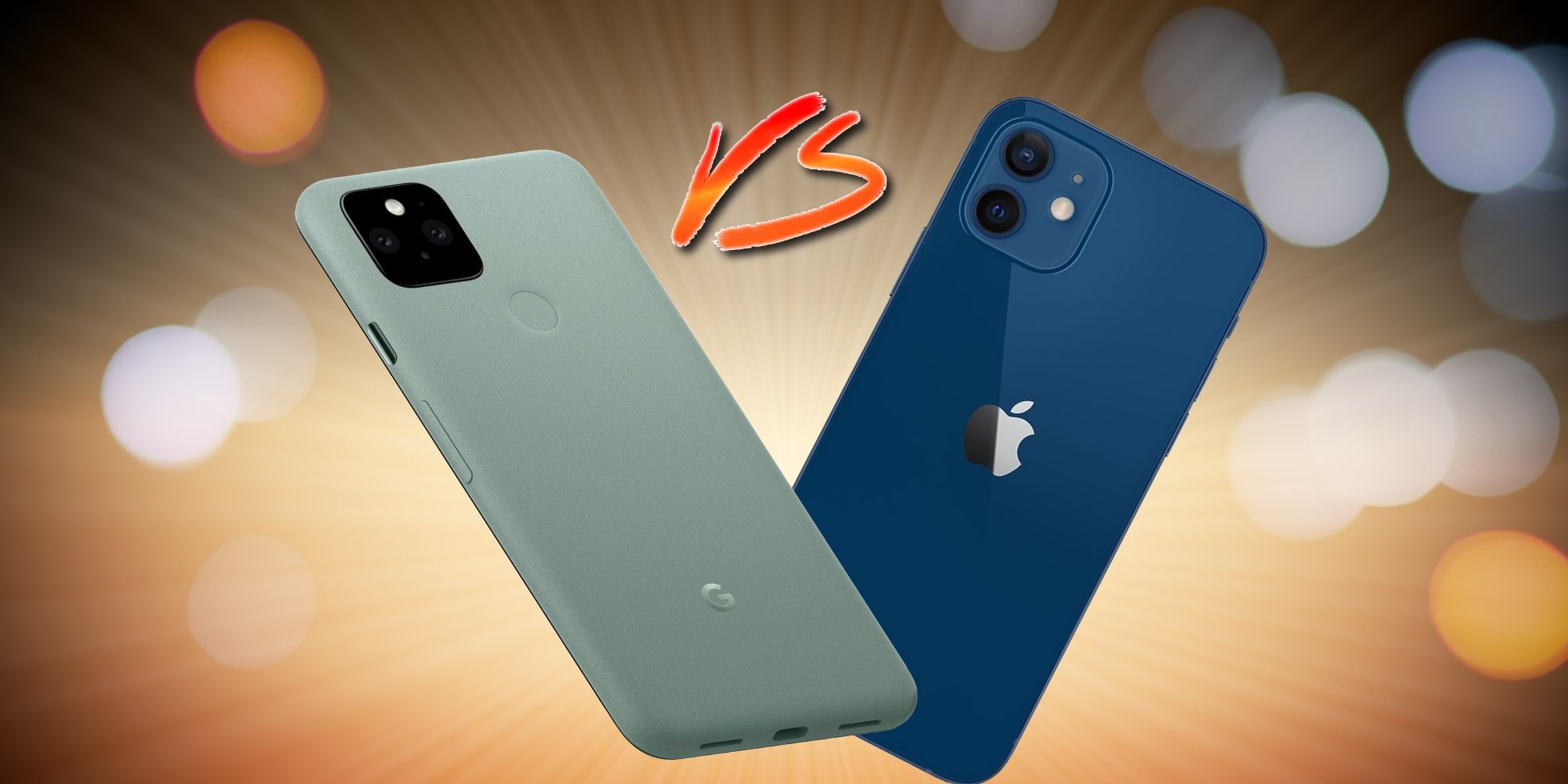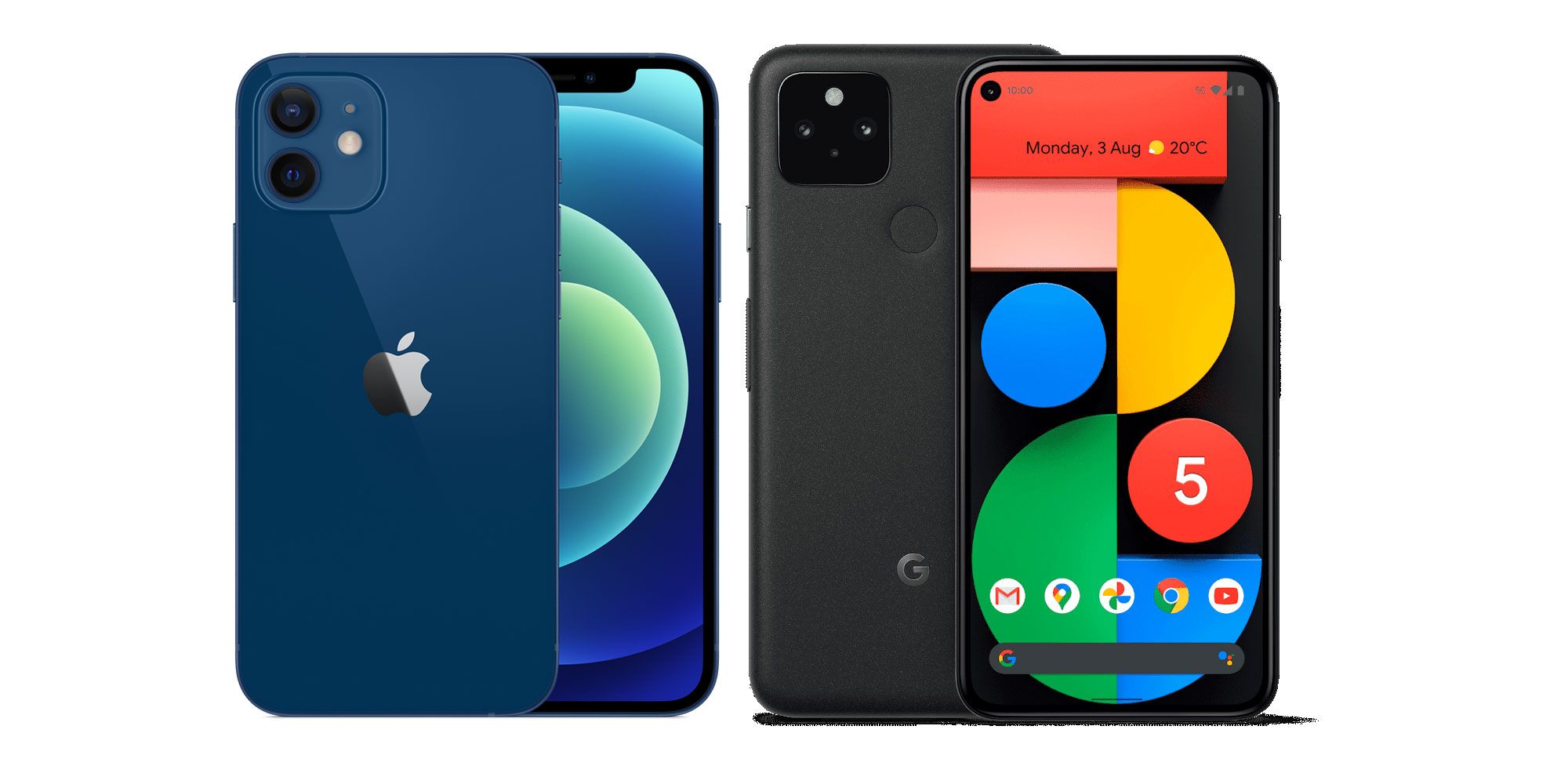The Pixel 5 is Google’s latest flagship smartphone and, while the Pixel is known for excellent photography, some may wonder how its video quality holds up against Apple’s similarly priced iPhone 12. Apple also offers the iPhone 12 Pro and Pro Max, which are its flagships for 2020, but the prices are significantly higher and therefore would not be fair comparisons. The iPhone 12 mini and iPhone 12 have nearly identical specifications and differ primarily in size and price.
Google’s Pixel phones are well-known for their computational photography prowess, which allows fairly standard camera hardware to capture photographs that compete with those from some of the best and most expensive smartphones on the market. They also have a reputation for recording good video, but their performance here hasn’t been as impressive as it has been with still photography. This may be an inherent limitation of Google’s reliance on software to maximize the potential of its hardware. Computational photography is amazing, but it runs into time constraints when applied to video.
The Google Pixel 5 can record in 4K resolution at 30 and 60 frames per second (FPS), with 30 being the old standard and more modern equipment moving to 60 FPS for smoother pans and sharper details on fast-moving objects. Shooting at a faster speed also allows a very nice slow-motion effect when editing without making the movement appear jerky. For true slow motion, the Pixel 5 can record 120 FPS at 1080p or 240 FPS at 720p resolution. There are two rear cameras, a 12.2-megapixel wide-angle with 1.4-micron image sensor pixels and f/1.7 aperture along with a rare 16-megapixel ultra-wide-angle with 1-micron pixels at f/2.2. The ultra-wide has a higher resolution than most smartphone cameras, but a small pixel size and the field of view is narrower, covering 107-degrees, while 120-degrees is more common. The front-facing camera is a bit disappointing with just an 8-megapixel sensor and 1080p, 30 FPS video. Apple’s iPhone 12 matches and exceeds many of the specifications, but there is more to recording video than just hardware. Apple's DolbyVision recording is nice but has limited use at the moment. Google's cinematic pan is fun but is a bit gimmicky.
Pixel 5 Vs. iPhone 12 Video Upshot
The iPhone 12 has a 12-megapixel wide-angle with brighter 1.4-micron pixels and a brighter f/1.6 aperture. This means its camera naturally brings in much more light and can capture a better image in the split-second available for recording each frame of a video than Google’s camera hardware. For the ultra-wide camera, the Pixel 5 is brighter and sharper as Apple’s second rear camera has a resolution of 12-megapixel and f/2.4 aperture. The field of view with the iPhone 12 is 120-degrees, so that may balance the trade-off in detail. The front-facing camera favors Apple again, with a 12-megapixel resolution sensor and up to 60 FPS video at 4K resolution. The iPhone 12 has a blazing fast A14 processor which allows Apple to fine-tune video processing and stabilization to a greater degree than Google’s phone, which uses a slower Qualcomm Snapdragon 765G chip.
Overall, Apple has better camera hardware and most agree that the Pixel 5 doesn’t have enough computational magic to overcome the deficit. For stills, multiple photos can be combined with advanced high-dynamic range processing to work computer magic and bring out more details, brightness, and colors than would normally be possible. For video, the processing time is limited as each frame is saved in one-thirtieth or one-sixtieth of a second and then it's on to the next frame in the video. When recording video, the power of the processor may be pushed to the limit, analyzing and adjusting for changes in lighting, color, and focus, while simultaneously stabilizing movement. Google's flagship is capable of recording beautiful 4K video, but some hands-on reviews have noted that the Pixel 5 can sometimes get hot when recording 60 FPS video at 4K resolution and its stabilization may occasionally be overly aggressive, causing abrupt shifts in the video. Indoor with low-light and outdoor evening videos show more noise in the dark areas. While Google can hold its own for still photography, Apple’s iPhone 12 mini and iPhone 12 match the Pixel 5's value and a better overall for recording video.


